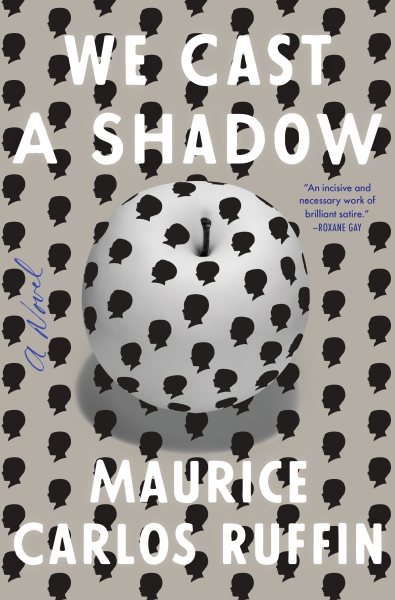By Norris Rettiger. Special to the Clarion-Ledger Sunday print edition (February 10)
Thrilling, terrifying, and true from the first page to the last, Maurice Carlos Ruffin’s debut novel We Cast a Shadow is a hallucinatory vision of a near-future American South.
 Narrated by a black father frantically climbing the ladder at a prominent law firm to gain enough money to pay for his biracial son Nigel’s demelanization procedure, We Cast a Shadow is a Kafkaesque nightmare for our times, a fever dream of a novel that is painfully aware of how close America is to becoming a white ethnostate run by reptilian billionaires.
Narrated by a black father frantically climbing the ladder at a prominent law firm to gain enough money to pay for his biracial son Nigel’s demelanization procedure, We Cast a Shadow is a Kafkaesque nightmare for our times, a fever dream of a novel that is painfully aware of how close America is to becoming a white ethnostate run by reptilian billionaires.
Ruffin thrusts the reader right into the drama of a household torn apart by doubt, anxiety, and fear. The narrator is convinced of one thing and one thing only—being black is a sin that society cannot and will not forgive. As such, he is focused on fixing his son.
To do that, he needs to make money, and in order to make money, he has to navigate an office culture that is as indifferent to human suffering as anything I’ve seen since American Psycho.
The narrator is trapped in a downward spiral of endless capitulation to a system that he knows, deep down, will never allow him to see success as a black man, no matter how much of his soul he sells.
But, it’s for Nigel’s future, and that is something worth fighting for. And so we watch as he buckles down and tries to save Nigel from the systemic racism and humiliation that people of color, the successful father included, face every day in the book.
In a way, the whole book is about a father finding safety in a place that seems to be specifically engineered to make him afraid for himself, for his job, for his life, and for his son’s life.
The twist is that in order for him to keep his son safe, he has to force his son to become something he was never meant to be. The words “it’s for the best” take on a darker tone as a well-intentioned father drives his son away with bleaching cream, baseball caps, and other ways to hide his true complexion.
Relations with his wife are also pushed to the breaking point, as she doesn’t and, according to the narrator, can’t ever understand why he’s so insistent that his son undergo this procedure that will so drastically affect his life.
Ignoring the pleas of his son and his wife, the narrator presses onward and upward, sure that even if he is destroyed by the risks, at least his family will see the reward.
There isn’t a book like We Cast a Shadow on the shelf right now in 2019. This is a very early contender for being the most incisive and timely book of the year, and it is absolutely worth checking out, especially if you’re interested in experiencing a rare perspective that feels so true to life, it must be some kind of great fiction.
Maurice Carlos Ruffin will be at Lemuria on Saturday, February 16, at 2:00 to sign We Cast a Shadow and in conversation with Kiese Laymon at 2:30 p.m.


Comments are closed.